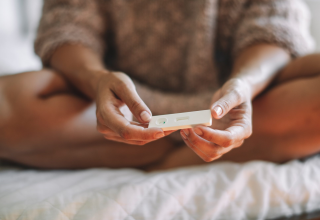
Having children is the desire of almost every couple. But not every couple is gifted to get children easily. A couple that is having unprotected intercourse at least 3 times a week, and has not been able to conceive after one year has a problem and should seek help.
The help available is determined by the type of problem they have. The major problems can be grouped into 4 main categories: Poor quality or insufficient sperm production, Anovulation, Blocked tubes and Problems with the endometrial cavity.
Anovulation
This is the commonest problem for women: the inability to release the egg to meet the sperm to form a baby. It may be related to a condition called Polycystic Ovarian Syndrome (PCOS). It could also be due to a high prolactin level (responsible for breast milk production). And yes, a woman can be having her menses even though she is not ovulating.
A woman is born with all the eggs she will have in her life; so if she is 45 years, then so are her eggs. The quality of the eggs available diminishes with age, making it difficult to fertilise to produce a baby. Also, the lady may not be ovulating due to a diminished ovarian reserve. I recently saw a 36-year old woman whose ovarian reserve was like that of a 50-year old woman. She had stopped menstruating and her hormone profile was that of a menopausal woman. Premature ovarian failure can occur at very young ages so you should not assume that your fertility is assured. The youngest case I have seen was only 29 years old when her ovaries failed and became menopausal. Thankfully she already had one child.
For those who are not ovulating, the solution is to help them ovulate with a variety of medications. For those who cannot ovulate despite medication and other interventions, a donor egg is an option to consider. In such a situation, a younger woman (the donor) would be given medication to produce several eggs which would be harvested and combined with the husband’s sperm and the resulting baby transferred into the recipient’s womb. She then carries the child to term and delivers her baby.
People are initially reluctant to use donors because they want their child to have their own genes. With time however, they come to realise that, using a donor egg is their only option available and so they embrace it and have their child and joy unspeakable.
Dr. Padi Ayertey MB,ChB. FWACS
Obstetrician Gynecologist
Resolve Medical Services
Accra
Source: Glitz Africa Magazine Issue 19








